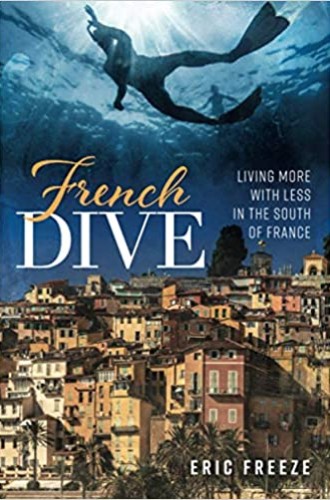Living a simplified life in France
Eric Freeze and his family moved to Nice—in order to spend less and live better.
Eric Freeze has written a fascinating account of his family’s move to France. It’s not a story of a retreat into contemplation, but rather one of parents who abandon their middle-class American lifestyle to travel with their four young children to the noisy center of Nice.
There they live for a year in what they can afford on his sabbatical at half pay: a tiny apartment. They rub shoulders with French neighbors, tradespeople, shopkeepers, and teachers. They joyfully gather vegetables in the late afternoons from outdoor market vendors who are about to throw them away. They enjoy walking or hitchhiking to most places—even though they often need to carry the youngest child—until they finally buy a small used car. Eric, the father of the family, dons a wet suit most mornings and teaches himself to spear fish for their dinners.
Freeze refers to the movement he and his wife join in France as les décroissants, which literally means “the diminishing.” The central tenet of this movement is to simplify, to avoid cluttering your life with unnecessary stuff. The catchphrase in French, he explains, is depenser moins, vivre mieux: spend less, live better. “At the center of all the suggestions is time,” he writes. “Time to spend with family. Time for leisure activities or artistic pursuits. Time to eat, to socialize, to exercise.” This is the way to live better, “not only for yourself, but for others around you on a planet with limited resources.”






